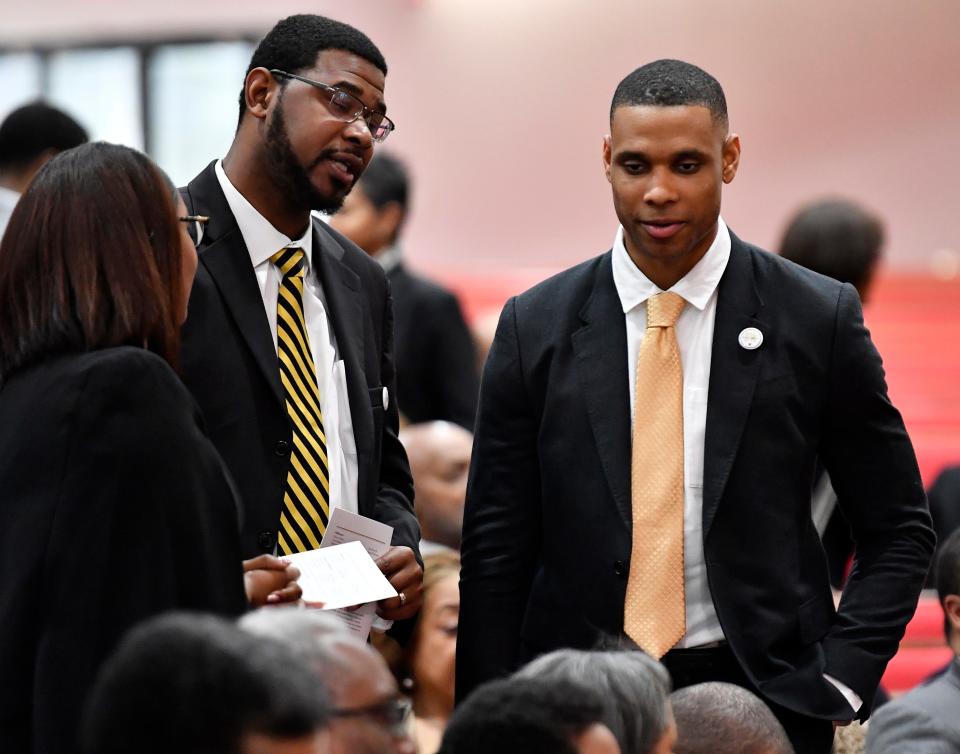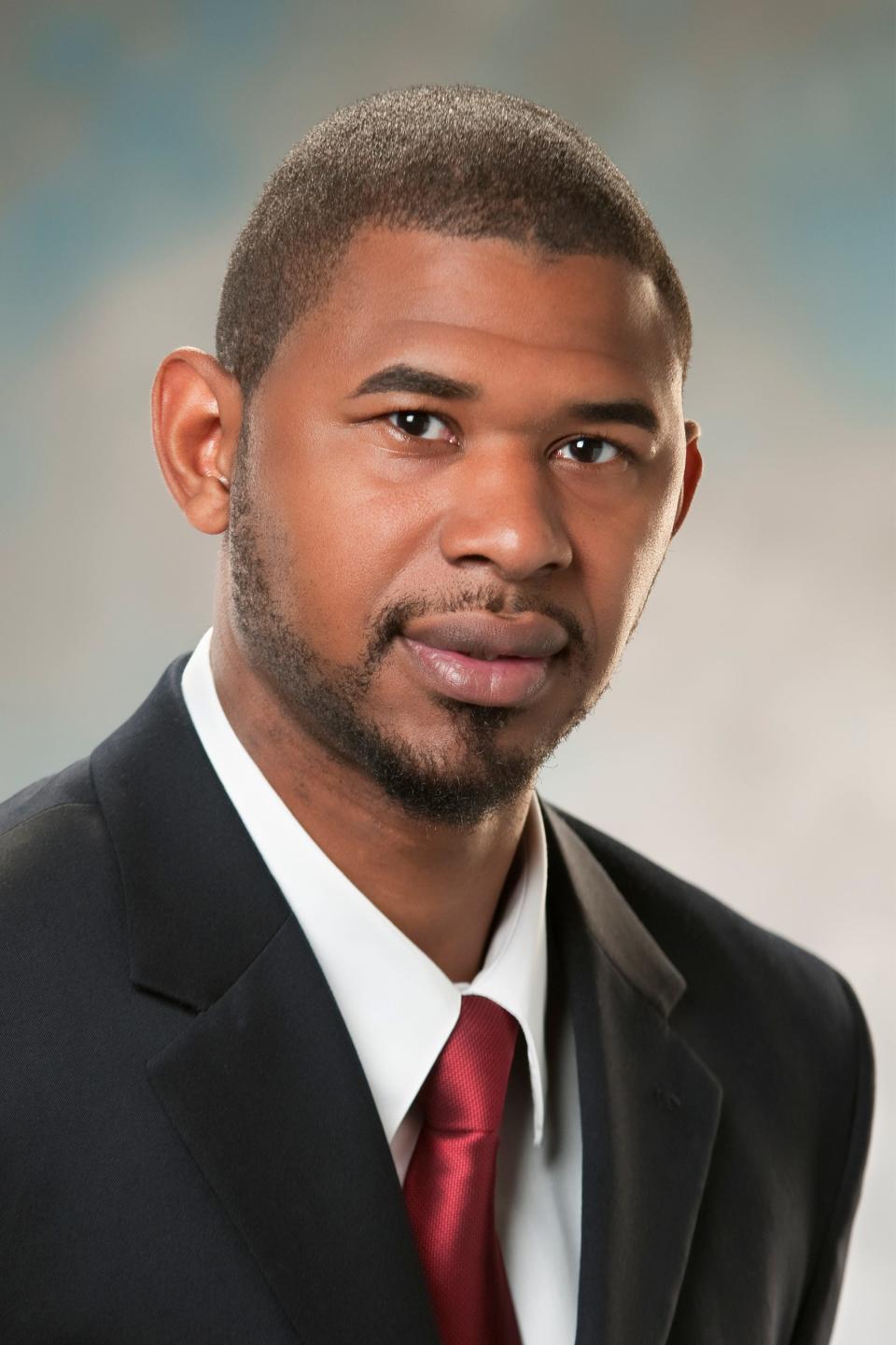How workplace diversity, inclusion and equity provide opportunities for everyone | Opinion
After over 100 diversity, equity and inclusion (DEI) workshops and speaking engagements with C-suite executives across the country, I’ve learned a few things that I’d like to share.
First, there seems to be a consensus that the next generation will solve diversity issues organically. One CEO said “Our kids are growing up more accepting and sensitive to others. Things will change when they are the leaders.”
While this is true on some levels, efforts to discredit critical race theory and condemning Black history curriculum, is a direct threat to organic change.
This debate over educational literature and public knowledge didn’t start recently, it’s been the foundation of U.S. decisions, dating back to the moral acceptance of slave labor and the zero sum game which many still cling to today; which is the idea that positive change for black and brown people means white people must give up something.
We all know that education has been rationed out: omitting diverse perspectives and many facts. This is why everyone in our office received a different education, especially around American history and the intentional economic decisions of our country's founders.
Those who fail to understand the past are more likely to repeat it. It seems like some things haven’t changed much at all.
Hear more Tennessee Voices: Get the weekly opinion newsletter for insightful and thought provoking columns.
While most are comfortable with a broad definition of diversity — gender, LGBTQ+, disabilities, military, age, etc.— there is resistance to moving Black people forward.
The true meaning of diversifying the workplace
One executive stated “Our company is very diverse, as we are 75% women.” When asked about racial diversity, there was only one person of color.

Diversity truly is about everyone. However, Black and brown people are still subconsciously required to have more education, achievement and experience in order to be considered for leadership and executive positions.
Hiring based on the acceptable phrase, “good culture fit”, seems to be code for white, requiring Black and brown applicants to code switch in order to fit in. The counter-argument is the number of Black hires that ultimately led to an exit due to limited performance or resignation.
When looking deeper, many were hired without any training or support in response to the murder of George Floyd and some joined teams that normalized hostile working conditions. In both scenarios, talented people were set up to fail.
While there are many companies seeing the benefits of diverse hires — those lagging behind tend to seek excuses opposed to solutions.
Hear from Tennessee's Black Voices: Get the weekly newsletter for powerful and critical thinking columns.
Many are concerned about those being overlooked for opportunities due to the emphasis on diversity. I can’t help but ask, where was this concern for military veterans, people of color and those with disabilities prior to now?
Raise awareness for the work we have to do
One executive mentioned his daughter not being accepted to the college of her choice due to 34% of minorities being admitted. He said, “That’s not fair.”
The word fair is important here. Merriam-Webster defines fair as free from self-interest, prejudice or favoritism.
Considering 66% of admissions to her choice college were white, couldn't an argument be made that desiring more is asking for favoritism, self-interest or even prejudice?
Yet, there are many who share his sentiments for his daughter. This is not about indicting or the need to place fault.

Your state. Your stories. Support more reporting like this.
A subscription gives you unlimited access to stories across Tennessee that make a difference in your life and the lives of those around you. Click here to become a subscriber.
More importantly, it’s about raising awareness that we all have work to do. Business owners and leaders have the responsibility of creating working environments that are free from discrimination and harassment.

They also have the opportunity to build the foundation of equity and inclusion for the next generation of leaders.
As society has changed its expectations for employers, it puts a demand on the workplace experience to change. That change includes representation of various communities and experiences in executive roles, intentional professional development at all levels, transparency, robust benefits and increased engagement through consistent inclusion.
The goal here is to participate in every employee reaching their peek performance levels— which ultimately pushes the company to gains beyond imagine. However, the questions remain, do you believe:
The best ideas come from diverse teams?
Diverse teams are more productive ?
Diverse teams provide experience and intel helpful for communications and decision making?
Inclusion unlocks the power of diversity?
Measuring talent by culture fit is asking people to be more like others than themselves?
Waiting on a lawsuit to change is not leadership?
If so, DEI is not what we have to do, it’s what we get to do. See you at work.
Shan Foster is the co-founder and CEO of Fostering Healthy Solutions, LLC where he cultivates healthy solutions to diversity issues through education, training, and execution.
This article originally appeared on Nashville Tennessean: Why diversity, equity and inclusion matter in the workplace

